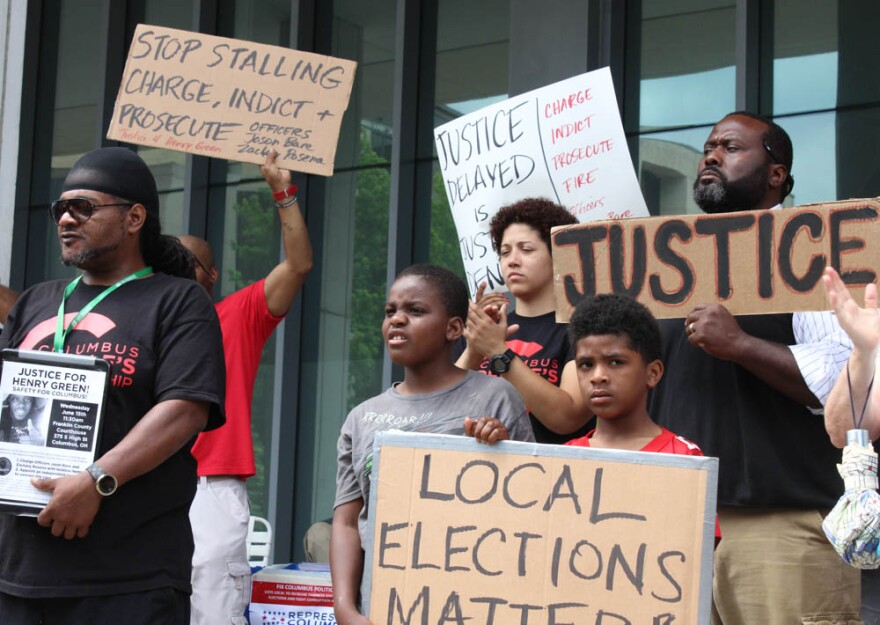Mayor Andrew Ginther at his State of the City address on Thursday is expected to announce plans to extend a controversial summer policing program year-round.
The Summer Safety Initiative targets higher-crime areas with increased patrols - something that activists say unfairly targets minority neighborhoods.
Developed in the early 90's, during the crack cocaine epidemic, the Summer Safety Initiative was intended to combat the spike in crime, specifically gun violence, that usually comes during the summer months. Police spend about 12 weeks a year tracking crime statistics to identify what are called "hot spots," and additional officers are then sent to patrol these areas.
Activists argue, though, this initiative targets low-income communities of color. Last summer, a deadly encounter between police and a black man sparked protests.
While patrolling the South Linden neighborhood, two plain-clothed police officers assigned to the initiative shot Henry Green, who police say didn't comply with orders to drop a gun.
A witness says Green didn't know the men were officers until he was handcuffed on the ground.
Beyond Policing
The founder of Ministries for the Movement, Pastor Fredrick LaMarr, has spent the last decade combating violence on the city's South Side. When he learned that Mayor Ginther planned to expand the Summer Safety Initiative, he first thought of Henry Green.
"Nobody wants drugs, nobody wants guns in the community," LaMarr says. "But ain't nobody trying to lose nobody's life."
LaMarr says there are times when additional policing in his neighborhood can be helpful. But he wonders if the city should focus on solutions that go beyond enforcing the law.
"Why are there hot spots?" LaMarr asks. "Why is there crime in that particular area?"
Lamar says economics drive many of these crimes. He thinks some of the money spent on policing could be better invested in opportunities for education and employment.
Now that the Summer Safety Initiative is being expanded, LaMarr says, it should be modified - specifically away from the use of plain-clothed officers.

Plans To Expand
Director of Public Safety Ned Pettus says when he started this position last August, he met with residents across the city to hear their perspectives on the policing initiative.
"I realize that there are some people that want the program to end," Pettus says. "But there are lots and lots of people that value and appreciate a greater police presence in their neighborhoods."
Crime rates in Columbus are down slightly compared to previous years. Pettus says not every neighborhood enjoys the same level of safety, though. He says the crime-tracking strategies used in the Summer Safety Initiative will be used to target these high-crime areas.
Unlike the summer program, Pettus says the year-round program will rely on on-duty officers, as opposed to officers working overtime. And even though the program is expanding, Pettus says the budget will not increase from the $750,000 allocated for the program every year.
And the use of plain-clothed officers? They will stay, although Pettus says the guidelines have been reiterated and out-of-uniform officers are for surveillance purposes only.
Unless there's an imminent threat, Pettus says, they should leave arrests to uniformed officers.





